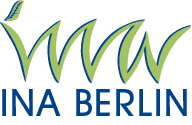Services
Counselling and process support
Diversity and interdisciplinarity
Overview of formats
In the area of professional counselling and support, INA gGmbH is broadly positioned in line with its interdisciplinary nature and the diversity of the institutes. Working as a team enables us to combine different formats of professional communication.
Training, specialist and policy advice achieve the needs- and resource-orientated transfer or training of skills and abilities, methodological or content-related know-how.
Process support includes professional communication formats such as coaching, supervision, mediation, moderation and evaluation.
Please contact us directly if you are interested.
We will create a customised offer for you and focus directly on your needs and concerns.
Counselling and process support
Our services

- Coaching
- Evaluation
- Specialist counselling
- Further education and training
- Intervision
- Mediation
- Mentoring
- Moderation
- Policy advice
- Supervision
- Training
Coaching is a form of goal- and resource-oriented counselling in which coachees are clients, as opposed to patients in therapy and clients in (client-centred) counselling. There is selective or process-oriented support for change or stabilisation. This focuses on optimising the current situation or contributes to the realisation of goals.
There are many overlaps with other counselling formats, particularly supervision. The term "coach" was first used in 1556, meaning "carriage". Even today, coaching can still be described with this image as a service that makes it easier for people to achieve their goals.
INA's evaluation concept is based on the standards of the German Evaluation Society and is characterised by the three-step formative (process-accompanying) evaluation:
a. Recognising and evaluating the quality achieved in a field of practice/project progress with the aim of quality assurance
b. Recognising and constructively-critically evaluating the need for change along scientifically-based quality criteria with the aim of quality development
c. Tailored recommendations for change options, taking into account the specific framework conditions of a field of practice/project with the aim of organisational development.
INA develops and implements methods and instruments for internal and external evaluations and advises organisations on the development of their own evaluation concepts.
Innovative developments in practical fields of education, psychology and economics can benefit from external expertise from people who are willing and able to put their knowledge and experience at the service of people and organisations. INA gGmbH's counselling concepts are characterised by the fact that they involve a discursive process with those who request counselling to find out what the specific need for counselling is, what goals are to be achieved in the counselling process and what steps can be taken to achieve the goals with the help of INA consultants.
INA gGmbH offers a wide range of further education and training courses, workshops and development workshops, characterised by the orientation of its individual institutes.
In intervision, members of a peer group support and accompany each other with the help of peer counselling. Intervision helps professionals, groups and teams to increase self-reflection and improve their professional behaviour.
Mediation is a mediation process between two or more parties. Mediators are called in as an impartial third party. The aim is to create a constructive win-win situation with a sustainable conflict resolution.
Essential basic principles are the inclusion of all parties to the conflict, confidentiality, openness of outcome and the mediands' personal responsibility. Open-endedness in the process requires the mediator to be independent of instructions. As a rule, the mediation process is based on voluntary participation.
The parties to the conflict are and remain the experts for their conflict and its resolution. Mediators are responsible for the process. They support and accompany the process.
In mentoring, a newcomer receives support in the first few years of his or her career by having an experienced specialist on hand to provide advice and assistance.
Facilitation focuses on the organisation and structure of a discussion process, event or other setting. The aim is usually to discuss and distribute tasks and functions or to bring them into a common framework or context.
The transitions to other formats of professional communication are fluid, and methods and working methods overlap to some extent. It is important that there is a clear working alliance at the start of the (collaborative) work.
Innovative developments in practical fields of education, psychology and economics require acceptance and support from those in positions of responsibility in parliaments at local, regional, national and international level. INA gGmbH contributes its expertise to parliamentary discourse and plays an active role in shaping political opinion and developing political positions. It participates in networks that campaign for the realisation of human rights and initiates projects that support marginalised children, young people and adults at local and regional level in independently representing their rights.
Supervision is generally intended as professional counselling for specialists, groups and teams to increase self-reflection and improve professional action.
The training focusses on the (further) development of action competence (skills and knowledge) – whether in a one-to-one setting or in a group.





